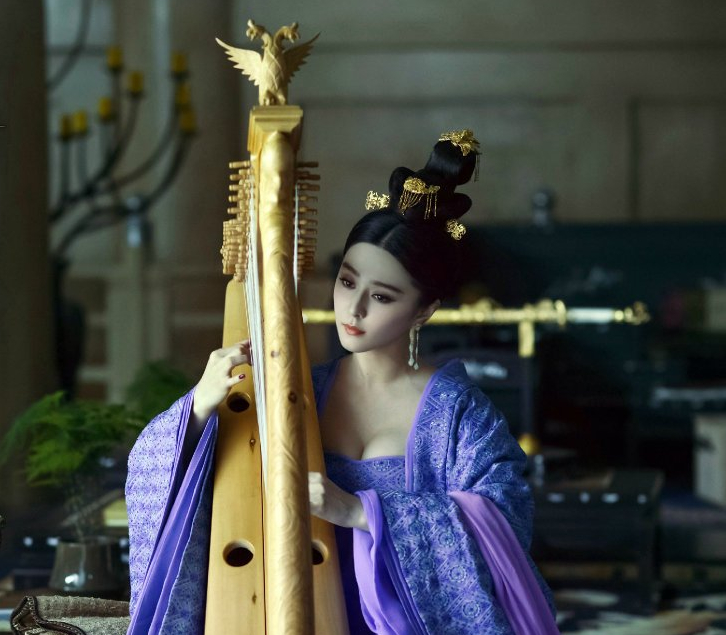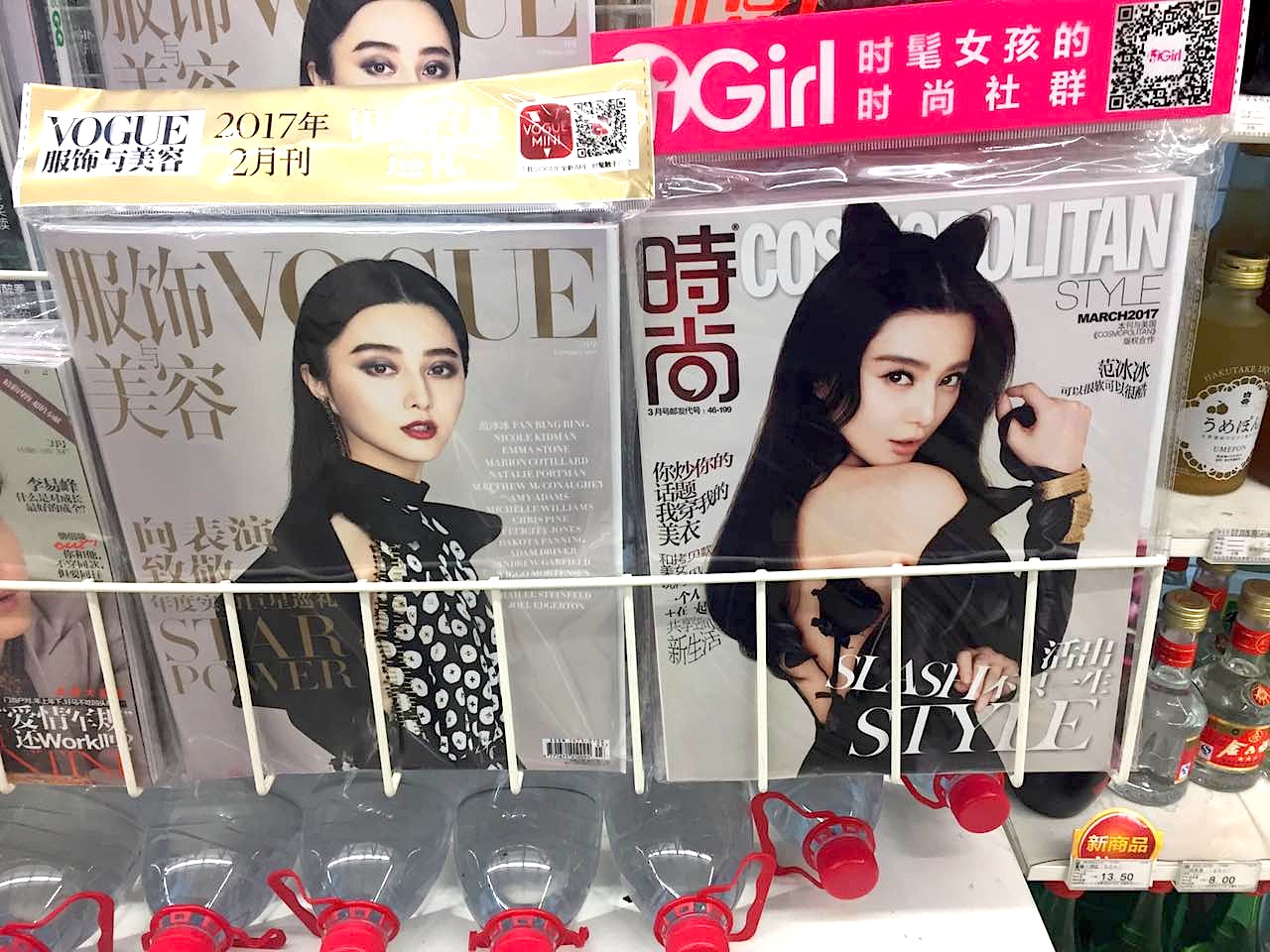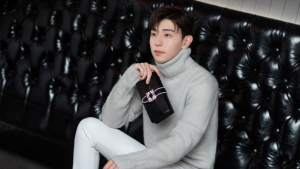
Welcome to Sky Kings and Heavenly Queens, an ongoing series of profiles designed to introduce you to China’s most successful actors and actresses. The rapid emergence of Chinese popular culture over the past couple of decades initially moved faster than the country’s ability to develop its own pop culture talent: film stars and singers often had to be adopted from Hong Kong and Taiwan, or were Chinese-American ringers who found more opportunity than anything available in the US.
More recently, a couple of generations of extraordinary homegrown talent has taken its rightful place in the firmament, establishing themselves as household names with the same kind of power and resonance, and followings as large & devoted as those of any contemporary Western luminary. Naturally, the interest of Hollywood in the Chinese market has increasingly turned producers’ attention to these stars. In these profiles, we want to take the empty phrase “Big in China,” and replace it with some of the specific and noteworthy achievements and potentialities of these women and men. They’re people worth knowing about.
- Age: 36
- Career box office earnings: RMB 3.5 billion (US$510 million)
- Type: Fashion-idol with a real acting range. The sex appeal of a Scarlett Johansson ice princess meets the pluck and determination of Jennifer Lawrence.
- Best known for: Cell Phone; Lost In Beijing; Sophie’s Revenge; I Am Not Madame Bovary
- Contact details:
Manager/Producing Partner: Timothy Mou
Fan Bingbing Studio
jersey@fbbstudio.com - Agent
Daniel Manwaring
Creative Artsts Agency
10/F Ste. 1001, China View Tower 1, No. 2 Jia
East Gongti Rd.
Chaoyang Dist., Beijing, China
Postal Code: 100027
phone: +86 10 8593 2100
fax: +86 10 8587 1319
daniel.manwaring@caa.com - Salary (estimated): RMB 15 million, plus profit participation
- English language ability: good (better at line readings than conversation)
A Fan Bingbing snapshot: It’s a day of press screenings for 2013’s One Night Surprise, Eva Jin Yimeng’s working-woman comedy. Along with a few Little Fresh Meats comprising the male cast, the movie is built around Fan. She arrives at the event in jeans, a navy shirt, and sunglasses, trailed by several assistants and is almost immediately mobbed by reporters and a coterie of fans who’ve sussed out the event. Fan is clearly the movie star: no one else in the room has the look, the poise, or the magnetism. For a contemporary comedy, her $1,000 dressed-down look would have been more than adequate. But Fan and her entourage soon disappear, and she re-emerges in a kind of demure, lacy white dress, borderline-frou-frou, gesturing at Victorian cosplay—such is the outfit chosen for the occasion, and it is what Fan is going to wear.
Another Fan Bingbing moment: It’s the 2011 Busan International Film Festival, an event where Fan is always welcome. Asia’s largest such film event is careful to limit Chinese influence, which could rival Korea’s own output on its home turf. Fan is there to announce Lady of the Dynasty, in which she will play the legendary beauty and imperial consort, Yang Guifei (whose name also furnishes the title of the film in Chinese). The press event is set for 3 pm. At 4:30, Fan finally arrives, dressed in a pink ball gown more Scarlett O’Hara than Tang Dynasty femme fatale. Her star halo is so bright that almost no one notices that the fellow picking up her dress’s train is Wang Leehom, one of China’s top-selling pop artists. She apologizes for keeping the assembled crowd waiting, but Fan clearly has no remorse for spending the time it took to fix her look.
Western audiences may sometimes confuse Fan and Li Bingbing, glamorous Chinese divas who share a name. They are not related, however; their family names are Fan and Li. But in terms of both star and earning power, the similarity ends there. Fan, who just graced the cover of the Asian edition of Time, representing a feature story about the China’s film industry, has been named China’s highest-paid movie star three times by Forbes, and ranked fifth on the magazine’s list of the world’s top-earning actresses in 2016, pulling down US$17 million.

“Bingbing is an extremely hardworking and extremely gifted actress,” says Eva Jin Yimeng, the writer-director of Sophie’s Revenge and One Night Surprise, two fizzy hit comedies starring Fan. “After we made Sophie, we were immediately looking for another opportunity to work together because it was just so much fun.”
In the early aughts, a new generation of female Chinese stars appeared ready to take over from Gong Li, whose visage dominated 1980s and 1990s Chinese cinema: Ning Jing was at the center of Jiang Wen’s film, In The Heat of the Sun; the so-called Four Dan Actresses, Zhou Xun, Vicki Zhao Wei, Xu Jinglei, and Zhang Ziyi each made lasting marks, establishing significant careers that continue today. But it was the Qingdao-born Fan who played her cards most skillfully. Supporting Zhao, Fan got her start on television in the imperial drama My Fair Princess, before starring in 2003’s comic ode to infidelity, director Feng Xiaogang’s Cellphone, that year’s top-earning film. Her eye-catching performance in 2007’s Lost in Beijing spotlighted her capacity for edgy drama in a film that was precipitously pulled from theaters after its initial release. Its director, Li Yu was banned, but Fan received only a reprimand and continued working (at nearly the same time, the actress Tang Wei was also banned from working for two years, after her performance in Ang Lee’s erotic thriller, Lust, Caution).
Over the past decade, Fan developed a shrewd eye for material, appearing in some three or four films per year, balancing artistic and commercial interests to maintain both bank balance and critical credibility.
“I always joke that she’s the most shameless actress in the sense that to make comedy, she has to put down her beautiful face, both figuratively and literally, and she doesn’t care if that’s ruined if that’s what it takes to play the part,” Jin says.
Despite her top position among Chinese stars, Fan has yet to cross over meaningfully in a Hollywood production. She appeared briefly in Iron Man 3, and then in X-Men: Days of Future Past as a mutant called Blink, but both roles smacked of Hollywood opportunism, calculated moves to increase Chinese appeal without offering character depth or development. She fared better in last year’s English-language Skiptrace, with Johnny Knoxville and Jackie Chan, but the film’s nonperformance in the US did her no favors.
Another English-language film, The King’s Daughter, in which Fan plays a mermaid opposite Pierce Brosnan as King Louis XIV, has been languishing unreleased for over a year. Nevertheless, Fan acts in English well, if with an accent. (Photographer Rian Dundon, who served as Fan’s English tutor in 2008-2009, discussed the experience with CFI last year.)
Like any modern superstar diva, Fan is ever in the public eye, both across Asia as a celebrity spokesmodel for luxury brands like LVMH, Mercedes-Benz, Cartier, Chopard, and L’Oreal; and in China for popular goods including massage chairs and employment websites. She has been a regular participant in couture shows in Paris, and in 2014, when Barbie introduced its first Chinese doll, it was a special Fan Bingbing model. Her commercial ubiquity may be paying off even more than her movie star income: according to a case study published by MarketMeChina, “E-commerce giant Alibaba ranks Fan Bingbing as the most valuable celebrity in terms of generating sales on the site.”
Last year, she reunited with Feng Xiaogang for a decidedly unglamorous role in the caustic comedy, I Am Not Madame Bovary, playing a determined, scorned woman who was neither physically nor emotionally attractive, a brave performance in one of the year’s best films.
I Am Not Madame Bovary was not a commercial success at Feng’s customary level, however, failing to meet a RMB 500 million box office guarantee that the film’s funders had vouchsafed its distributor—this, plus her overall appearance in only a single film (Skiptrace) from among China’s top 10 highest grossers in 2016 could be an indication that her star has started to fade at the box office, or that her choice of roles is in need of commercial sharpening. During this year’s record-setting Chinese New Year period, Fan appeared in none of the major titles, and industry sources also report her upfront salary as dropping in recent years.
Nevertheless, she is a generational icon, and a true talent. Last November, she signed with the powerful Creative Artists Agency, and their guidance could easily put her back on top, as well as creating new opportunities for her in Hollywood.





